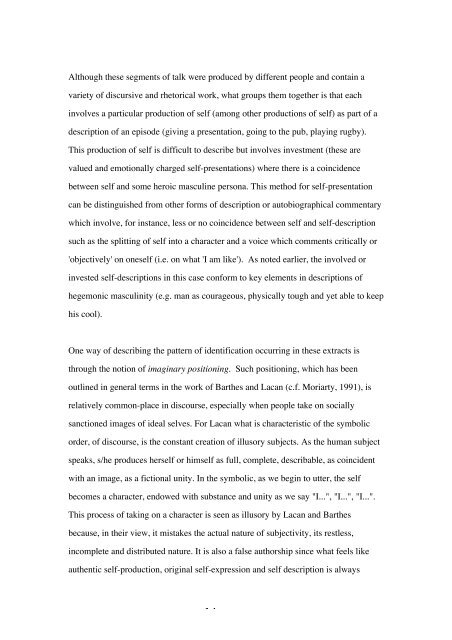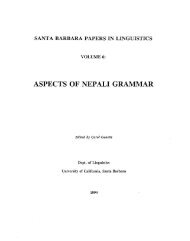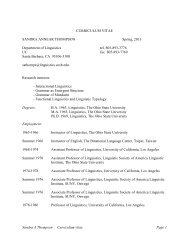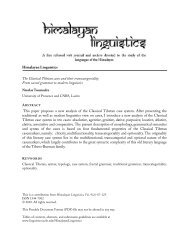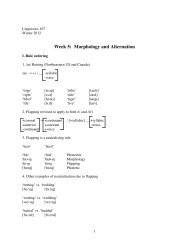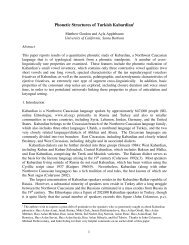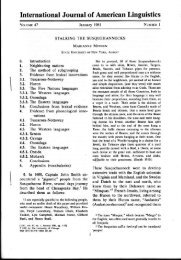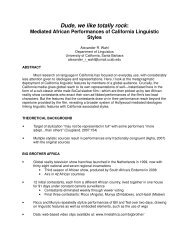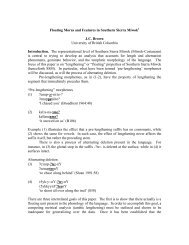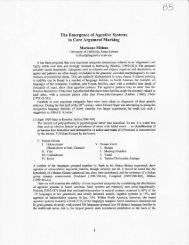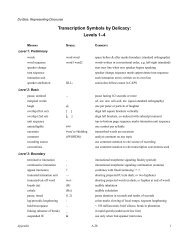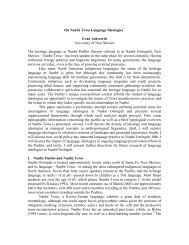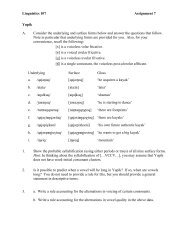Negotiating Hegemonic Masculinity: Imaginary ... - UCSB Linguistics
Negotiating Hegemonic Masculinity: Imaginary ... - UCSB Linguistics
Negotiating Hegemonic Masculinity: Imaginary ... - UCSB Linguistics
You also want an ePaper? Increase the reach of your titles
YUMPU automatically turns print PDFs into web optimized ePapers that Google loves.
Although these segments of talk were produced by different people and contain a<br />
variety of discursive and rhetorical work, what groups them together is that each<br />
involves a particular production of self (among other productions of self) as part of a<br />
description of an episode (giving a presentation, going to the pub, playing rugby).<br />
This production of self is difficult to describe but involves investment (these are<br />
valued and emotionally charged self-presentations) where there is a coincidence<br />
between self and some heroic masculine persona. This method for self-presentation<br />
can be distinguished from other forms of description or autobiographical commentary<br />
which involve, for instance, less or no coincidence between self and self-description<br />
such as the splitting of self into a character and a voice which comments critically or<br />
'objectively' on oneself (i.e. on what 'I am like'). As noted earlier, the involved or<br />
invested self-descriptions in this case conform to key elements in descriptions of<br />
hegemonic masculinity (e.g. man as courageous, physically tough and yet able to keep<br />
his cool).<br />
One way of describing the pattern of identification occurring in these extracts is<br />
through the notion of imaginary positioning. Such positioning, which has been<br />
outlined in general terms in the work of Barthes and Lacan (c.f. Moriarty, 1991), is<br />
relatively common-place in discourse, especially when people take on socially<br />
sanctioned images of ideal selves. For Lacan what is characteristic of the symbolic<br />
order, of discourse, is the constant creation of illusory subjects. As the human subject<br />
speaks, s/he produces herself or himself as full, complete, describable, as coincident<br />
with an image, as a fictional unity. In the symbolic, as we begin to utter, the self<br />
becomes a character, endowed with substance and unity as we say "I...", "I...", "I...".<br />
This process of taking on a character is seen as illusory by Lacan and Barthes<br />
because, in their view, it mistakes the actual nature of subjectivity, its restless,<br />
incomplete and distributed nature. It is also a false authorship since what feels like<br />
authentic self-production, original self-expression and self description is always<br />
14


